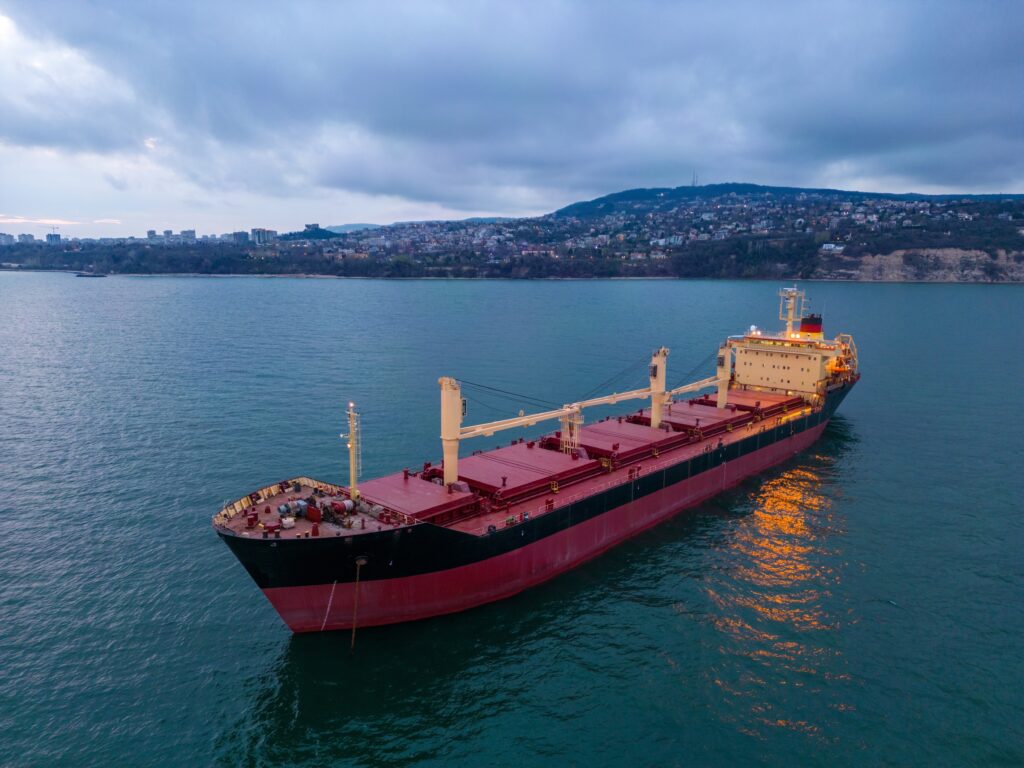Vessel chartering, the practice of hiring a ship to transport goods, is a vital pillar in maritime shipping. Flexible and cost-effective, this method has quickly become one of the go-to logistics solutions for businesses seeking economical yet reliable shipping options.
However, vessel chartering’s strengths go beyond its standalone benefits. In this blog, we’ll explore how it forms the backbone of a broader, cost-effective logistics strategy, especially when combined with services like Less than Container Load (LCL) and cross-border trucking. This synergy between the three builds a robust supply chain framework that can adapt to the varied requirements of both large and small companies.
What is Vessel Chartering?
Vessel chartering is a fundamental service in maritime logistics, involving the hiring of a ship to transport goods. This flexible option can handle a wide range of cargo types and sizes and is available in several forms to meet diverse shipping needs:
- Voyage Charter: A ship is hired for a single journey between specified ports, perfect for one-off, large-scale shipments.
- Time Charter: The ship is hired for a set period, providing flexibility for ongoing transportation needs.
- Bareboat Charter: The charterer gains full control over the vessel and its crew, ideal for businesses with specialised, long-term shipping requirements.
With the option to charter the full vessel or part of the ship, vessel chartering is particularly effective for transporting break bulk shipping and out-of-gauge (OOG) cargo.
Break bulk shipping is the transport of goods that are loaded individually in bags, boxes, crates or barrels instead of standard containers. These items are often bulky or heavy, making them challenging to handle through conventional container shipping. Chartering a vessel allows businesses to provide the necessary space to handle such items, ensuring safe and efficient transport.
OOG cargo typically encompasses oversized items that exceed the standard dimensions of a shipping container, such as those encountered in heavy machinery shipping. Chartering a vessel gives businesses the means to accommodate these large-scale items, complete with specialised equipment and necessary expertise for safe and secure handling during transit.
The Benefits of Vessel Chartering
There are many benefits and advantages associated with vessel chartering over conventional shipping.
- Flexibility and Adaptability: Vessel chartering provides flexibility in cargo handling and scheduling. Whether it’s dealing with fluctuating shipment sizes or accommodating specific timing requirements, chartering a vessel offers the adaptability businesses need.
- Customisation and Control: Chartering a vessel allows businesses to customise their shipping operations to their specific requirements. This includes control over the type of vessel, the shipping route, and the scheduling, all of which can be tailored to suit individual business needs.
- Enhanced Cargo Handling: For oversized or specialised cargo, chartering a vessel provides the extra space and expertise for safe and efficient handling. This is particularly valuable for industries that require the transportation of unique or large-scale goods.
- Operational Efficiency: By aligning shipping schedules closely with business operations, vessel chartering can enhance overall operational efficiency. This includes reduced wait times for cargo, better integration with supply chain processes, and the ability to respond quickly to market demands.
- Broader Market Access: Vessel chartering can facilitate access to new markets, particularly for businesses looking to expand their reach globally. With the ability to charter vessels to various destinations, companies can explore new trade routes and markets more easily.
LCL and Cross-Border Trucking: Enhancing Vessel Chartering
While it is not feasible for small businesses to charter an entire vessel on their own, LCL services open the door for these companies to incorporate vessel chartering as part of their logistics solutions.
By using LCL, smaller shippers can effectively “piggyback” onto larger shipments, taking advantage of the economies of scale and cost-effective rates typically reserved for bigger businesses. At the same time, larger businesses with partially filled chartered vessels can optimise their capacity and reduce costs by accommodating these smaller LCL shipments.
This maximises the use of the vessel and allows larger companies to offset their expenses by sharing space with smaller enterprises. Such a collaborative approach in integrating LCL with vessel chartering leads to more efficient utilisation of space and resources, benefitting both small and large businesses.
Cross-border trucking adds a third, synergistic element to the combination of LCL and chartered vessels. It complements the two by bridging the gap between sea ports and inland destinations, creating a seamless, end-to-end logistics solution. This integration ensures efficient and cost-effective cargo movement from the initial loading at the port to final delivery inland. A prime example of this in action is how cross-border trucking significantly bolsters trade and logistics efficiency between Singapore and Malaysia, showcasing the practical impact of these integrated services in a key regional corridor.

Streamlining Global Logistics with Vessel Chartering, LCL and Cross-border Trucking
Halcon Primo Logistics (HPL) is a freight forwarding company in Singapore that combines vessel chartering, LCL, and cross-border trucking services to create versatile and cost-effective logistics solutions. Our approach opens up global shipping avenues, empowering smaller enterprises with access to international markets, while enabling larger corporations to enhance their logistics efficiency and offer more competitive services. Our commitment to streamlining supply chains extends beyond cost savings, focusing on improved scheduling flexibility and heightened cargo security.
Let Halcon Primo Logistics be your trusted logistics partner in Southeast Asia. Our bespoke solutions in vessel chartering, LCL, and cross-border trucking are designed to align with your unique business needs, ensuring a seamless and efficient logistics experience.
Reach out to us to develop a logistics strategy that not only meets your current requirements but also supports your future growth.

